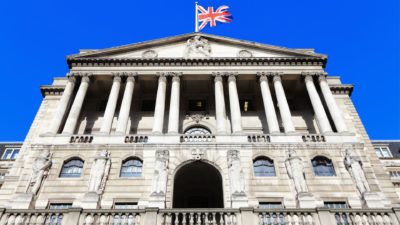Written by David Smith, Economics Editor of The Sunday Times
Even to someone who follows them as closely as I am required to do, most budgets are forgettable. As a test, can you remember any of Philip Hammond’s budgets? Without being unkind to Lord Hammond, chancellor under Theresa May, it is hard to remember much of what he did in the job, apart from gaining the nickname “Spreadsheet Phil”.
It is different now, because it looks very much as if Rachel Reeves will have at least two memorable budgets to her name, however long she continues as chancellor. Last year’s was memorable for what many in business considered to be a manifesto-busting increase in employer national insurance (NI).
It was certainly a big increase in tax, raising as much as £25 billion a year extra from business, and increasing employment costs hugely, with damaging knock-on effects on jobs. Ministers insisted that the manifesto pledge only applied to employee NI contributions, not employers. Many in business saw that as wriggling out of a promise.
For landlords, the budget a year ago could have been worse. There were suggestions beforehand of a bigger capital gains tax (CGT) hit than transpired. But while there were increases in CGT rates, with the lower rate rising from 10 to 18 per cent and the higher rate from 20 to 24 per cent, the rates on residential property disposals, excluding main homes, stayed at 18 and 24 per cent. It had been widely feared that these rates would rise.
For those not affected by the big rise in employer NI, there was still plenty to digest, most notably an increase in the stamp duty land tax surcharge for landlords and second home buyers from 3 to 5 per cent. It could have been worse.
This year, if all the speculation is right, and if all the pitch-rolling by the chancellor was for a purpose, we will see another big tax-raising budget. It had been expected that it would also break new ground by explicitly breaking a manifesto pledge not to raise income tax rates. That would have driven a coach and horses through that pledge.
As you will know, a rise income tax rates now looks to be off the agenda, even one in which a 2p rise in income tax rates would have been balanced, for workers, by a 2p cut in employee NI contributions, which was widely canvassed.
Before breathing a sigh of relief, though, we should bear in mind what the removal of a rise in income tax rates might mean. Instead of a big and bold increase in one of the main taxes, income tax, we may be left with what has been described as a smorgasbord budget, consisting of a host of smaller but potentially damaging measures.
This is why it matters. The more that Reeves might have raised in income tax, the less she would have needed to engage in other fiddly little tax hikes, some of which could do a lot of harm. There has, after all, been a lot of wild talk about new taxes, including those on property.
That wild talk of tax hikes includes the idea of CGT on main residences, previously regarded as sacrosanct, but only above a certain level. Given that such a policy would kill off a large portion of the housing market this surely cannot, to quote John McEnroe, be serious. Another idea, which may have more legs, is to increase council tax by putting two new bands in at the top end, a kind of backdoor property wealth tax.
These are just a couple of the dozens of tax ideas that have been floated in recent weeks, some authorised testing of the water, others pure speculation, as we will no doubt see. The uncertainty the run-up to the budget has created has been damaging, particularly to the property market.
The latest RICS (Royal Institution of Chartered Surveyors) residential market survey shows “that the sales market remains subdued, with measures of buyer demand and agreed sales still in negative territory. Anecdotally, comments from contributors suggest that uncertainty surrounding potential tax-raising measures in the upcoming Budget is contributing to the current cautious mood.”
In the rental market, the survey showed that “landlord instructions remain on a firmly downward trend, evidenced by a net balance reading of -33 per cent in the three months to October (the weakest level since April 2020). While near-term rent expectations indicate a slight increase in rental prices, the latest net balance of +15 per cent is noticeably softer than most readings observed over the past four years.”
We shall all be glad when all this is over, and we have to hope that the damage from the budget itself is not as severe as the damage leading up to it.

David Smith, Economics Editor of The Sunday Times

























Comments